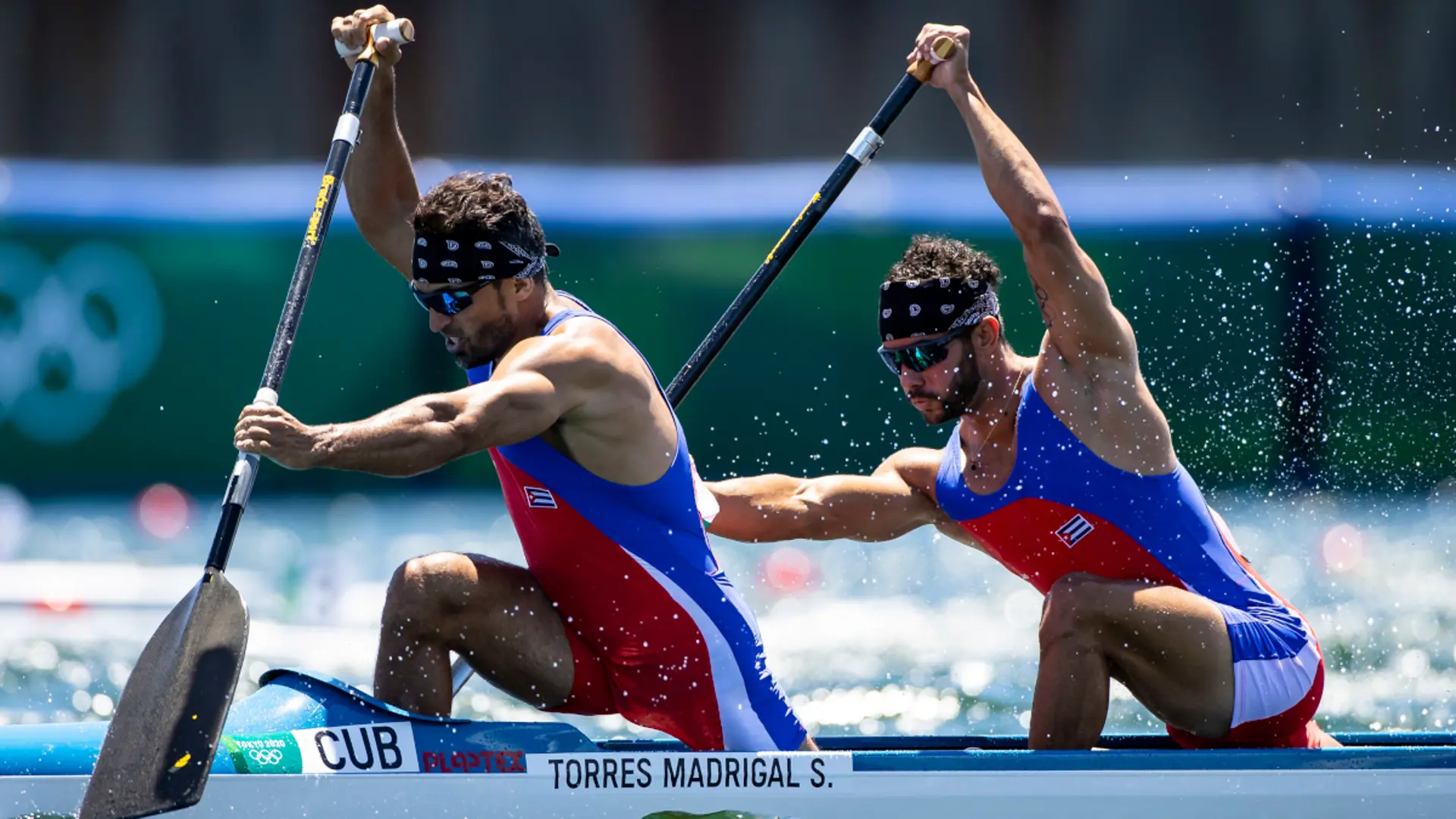Cuban Olympic champ trains to compete in Paris as a refugee

Fernando Dayan Jorge Enriquez, a champion sprint canoeist who fled his native Cuba two years ago, feels sick but still wakes up early to train for the Paris Olympics, where he will compete for a refugee team.
Jorge Enriquez won a gold medal in canoeing during the 2020 Tokyo Olympics in the doubles category, along with his teammate, Serguey Torres Madrigal.
At 22, he reached the pinnacle of a sport he began learning with his father at age 11 in the Cuban town of Cienfuegos.
Returning to Cuba, Jorge Enriquez was happy and proud, but he also felt empty wondering how he would find any motivation after having already tasted Olympic gold.
Life is hard in Cuba – with meager wages and shortages of food and other essentials – prompting him to think long and hard about his future.
"We had six months of vacation and I lived like everybody else in Cuba. I was no longer in the sports bubble," Jorge Enriquez said.
The communist government wanted his endorsement, fashioning him as a smiling symbol of national triumph and pride.
Instead, Jorge Enriquez dismissed the regime as a farce. "So I deserted," he said.
In March 2022, the Cuban canoe team traveled to Mexico City for a three-week training camp. Jorge Enriquez managed to sneak over the border into the United States, where he planned to meet up with his wife.
From the airport in Mexico City, Jorge Enriquez left with a colleague whose name he would not disclose.
Then began a harrowing journey to the US border, a 15-day ordeal in which they tried hard to go unnoticed and avoid getting kidnapped for ransom.
RIO GRANDE RESCUE
The last obstacle was to cross the Rio Grande, despite being at a spot where the water was dangerous.
They made it – barely – but had no time to celebrate.
Jorge Enriquez heard the screams of a woman in distress as he stood on the US side of the river.
"She was in the middle of the river, holding on to a rope, and saying she was going to let go, that she could not hold on any longer," the canoe champion said.
"Her husband was behind her, but the current was so strong he could not reach her," he added.
Jorge Enriquez decided to jump back into the water to save the woman. "I told her, 'come on, we're going to make it,'" he recalled.
After the rescue Jorge Enriquez entered the United States a hero, having saved the life of a stranger.
But in the following days he was treated like anyone else who entered the country without papers.
He was held for two weeks and then released pending a hearing with immigration authorities for his asylum request.
Jorge Enriquez flew to Miami, where his wife was waiting for him at a cousin's house.
Then came more hard times. He feared his parents would be punished for his desertion from Cuba. He worked as a plumber and maintenance man while training for his sport.
"I would get up at 4am to train, then go work for eight hours, then return home to train again," Jorge Enriquez said.
OLYMPIC DESTINY
On a recent morning in July, Jorge Enriquez practiced sprints in one of the many canals that cut through the town of Cape Coral in western Florida.
With his right knee down in the boat and the other knee bent at a right angle, he surged through the water with powerful oar strokes, even though he was sick with a cold.
Some neighbors have hung Olympic flags at the jetties behind their homes as a way of cheering him on.
Jorge Enriquez gritted his teeth as his coach Alain Nogueras followed him in a motorboat.
For both men, the Paris Olympics looked like a distant dream just a few months ago.
They met at a family gathering in Miami, where Nogueras offered to help Jorge Enriquez.
Then began the teamwork that led Jorge Enriquez to become a leading sprint canoeist in Florida and the United States at large, winning a bronze medal at the ICF Canoe Sprint World Cup.
Meanwhile, US authorities granted his request for asylum and he was able to bring his parents to Florida as he trained to go back to the Olympics.
After a year-long wait, he received a letter from the International Olympic Committee saying it accepted his request to be on the Refugee Olympic Team.
"I was bursting with happiness," Jorge Enriquez said. "I am going to represent that flag with so much pride."
The refugee team first competed at the Rio Games in 2016 and was also at the Tokyo Games. This time it will feature 36 athletes from 11 countries.
Looking ahead, Jorge Enriquez hopes to compete in the 2028 Games in Los Angeles – perhaps as part of the US team.
"I have no barriers in my head, especially what with all I have been through since I got here."
Advertisement
